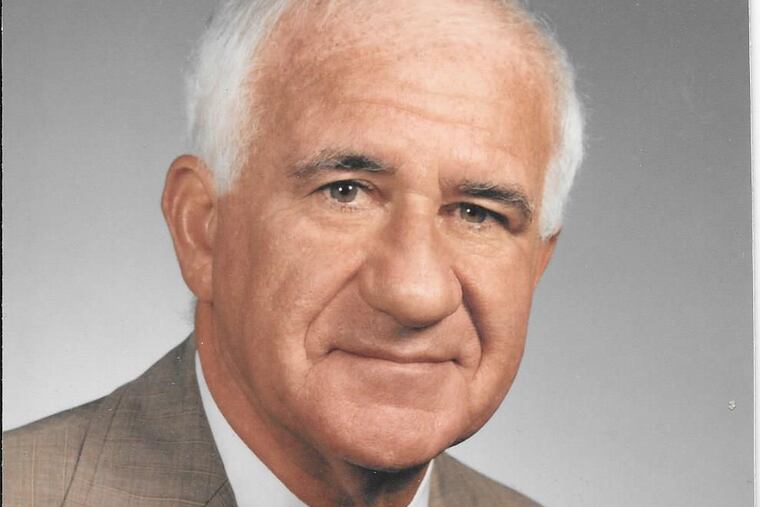W. Eric Scott, Cooper Hospital anesthesiologist and critical care physician
Dr. Scott was dedicated to putting patients' needs first.

Dr. William Eric Bruneton Scott, 92, former chief of anesthesiology of Cooper University Hospital in Camden and a respected teacher and role model, died peacefully Oct. 12 in his Moorestown home from complications of advanced age.
Born in Belfast, Northern Ireland, Dr. Scott was a graduate of Queens University, Belfast, and obtained his qualification in anesthetics from the Royal College of Surgeons of England. He practiced medicine in Liverpool, England, and his service included an appointment as a consultant to the Northern Ireland Hospital Authority.
In 1962, Dr. Scott — Eric to friends — came to the United States, where he became an attending physician and assistant professor of anesthesiology at Thomas Jefferson University Hospital. There, he met many lifelong colleagues and friends.
He was recruited to what is now Cooper University Hospital in 1968 to help implement its open-heart surgery program. He went on to serve two decades as Cooper’s chief of anesthesia. He spearheaded the development of a multidisciplinary intensive care unit and served as Cooper’s first head of the Division of Critical Care Medicine. Dr. Scott was the first physician member on the hospital’s Board of Trustees and a longtime member of Cooper’s Graduate Medical Education and Bioethics Committees.
Dr. Scott was a founding member of both the American Society of Critical Care Anesthesiologists and the New Jersey Society of Critical Care Medicine.
In 1989, Dr. Scott was recognized with the Shubin-Weil Master Clinician/Teacher Award. A national honor, the annual award is given for excellence in bedside teaching in critical care.
When Dr. Scott retired from Cooper, his colleagues established the Eric Scott M.D. Award for Critical Care to honor faculty members or fellows, also with an emphasis on bedside patient care.
“My father’s concern as a physician was never recognition, but rather twofold,” said daughter Jennifer Claire Scott of Hoboken. “It was the quality of care which had to do with quality of life.”
That included putting the needs of patients at the end of life first, but also being there for patents’ families, giving them the support and help they required, she said.
“A lot of the nurses and doctors who worked with him over the years have spent a lot of time recently talking with me about how much patience he had with the families at the same time as helping them see what was best for the patients,” his daughter said.
Dr. Scott enjoyed opera, and classical music could often be heard wafting from his office or car. He had great affection for his adopted home state, New Jersey, including Sea Isle City, where his family spent many vacations. He cherished afternoons on the family boat, as well as walks with loved ones by the shore.
In addition to his daughter, Dr. Scott is survived by Claire Corson Scott, his wife of 53 years; son, Keith; and two grandchildren.
In recognition of his lifelong dedication to the teaching and advancement of medicine, his remains have been donated to the Rutgers Robert Wood Johnson Medical School Anatomical Association in lieu of a funeral. The family plans to hold a private Celebration of Life at a later date.
Donations in Dr. Scott’s memory can be made to the Eric Scott M.D. Award for Critical Care through the Cooper Foundation, 3 Cooper Plaza, Suite 50, Camden, N.J. 08103. Contributions also can be made to Doctors Without Borders, New Jersey’s Samaritan Hospice, or a charity of one’s choice.